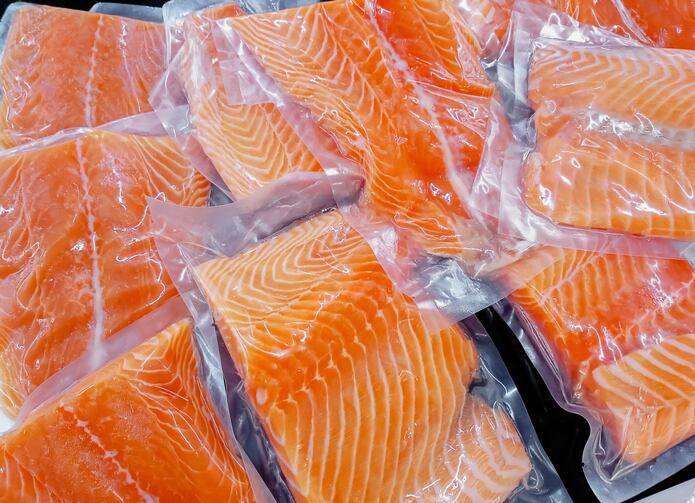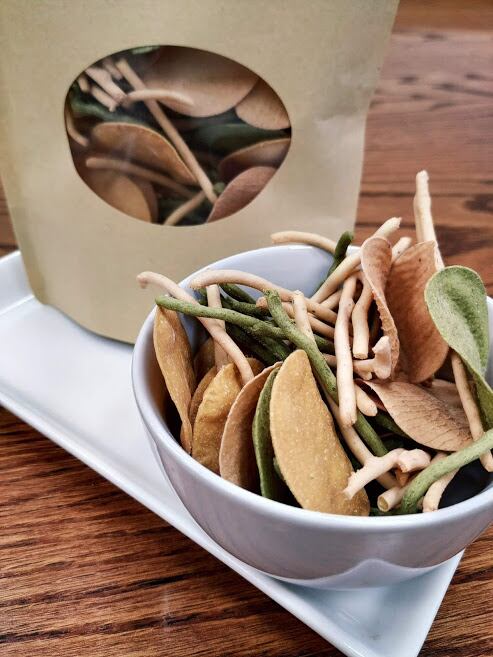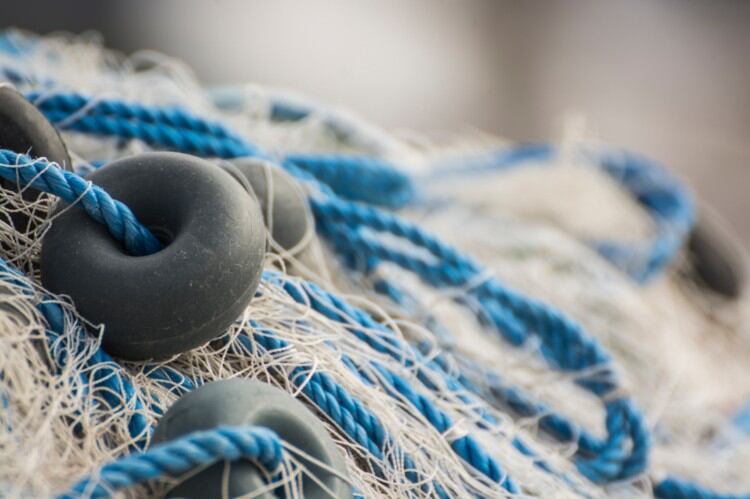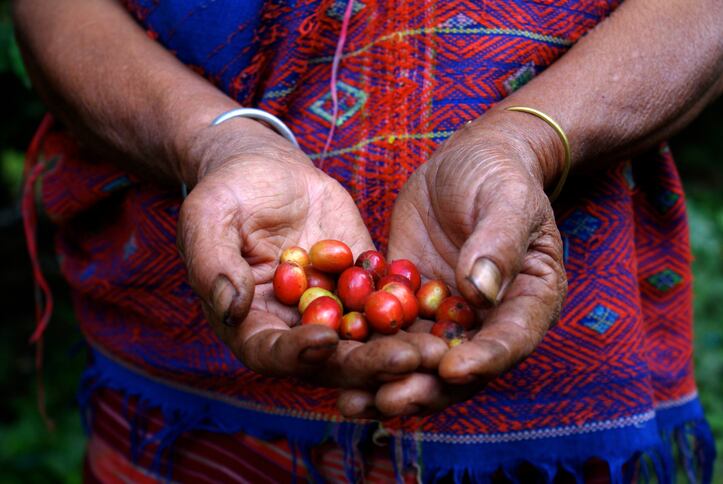The over-use of antibiotics in food production contributes to anti-microbial resistance in humans and is becoming an increasing concern among consumers. According to WHO, bacterial resistance could be one of the biggest global health problems in the future. It estimates that over 700,000 people die each year due to antibiotic-resistant infections but this number could increase to more than 10 million by 2050.
Over 70% of antimicrobials used in the world are for veterinary purposes, according to the global network Re-Act (Action on Antibiotic Resistance). In Chile, the aquaculture industry – which in 2018 exported more than 850 000 tonnes of salmon, worth US$5 billion, according to trade association SalmonChile – is the country’s heaviest user.
'Farmed salmon has lost its natural image'
“The salmon industry is the one that most uses antibiotics in Chile, which is why demanding significant and immediate reductions of this medication is urgent,” said Javiera Calisto, marine pollution campaign director at non-profit organization Oceana.
Oceana is calling on Chile’s aquaculture industry to be more transparent on the amount of antibiotics used in its production so that consumers can make informed decisions when buying farmed salmon. Over-use of antibiotics risks harming not just human health but the aquaculture industry itself.
“The excessive use of antibiotics has a direct effect on development prospects for the Chilean industry,” wrote researchers from the University of Concepción, Chile in a study published this year.
“Farmed salmon has lost some of its ‘natural’ image, giving organically farmed salmon and wild salmon, as well as other wild species, a potential commercial advantage. In the future, it seems reasonable to expect an increased importance in product eco‐labelling and third‐party certification to discriminate between salmon suppliers, with a greater focus on geographic origin and mode of production,” they added, calling for stricter regulations to set higher minimum standards and create a level playing field.
Certification
However, voluntary certification is also increasing among some of the biggest producers. This summer, Salmones Multiexport became Chile’s first salmon producer to earn Best Aquaculture Practices (BAP) certification under a two-year audit designed specifically for salmon producers, with fourteen of the company’s farms becoming certified.
Two of the country’s largest salmon producers, Exportadora Los Fiordos (Super Salmon) and Salmones Blumar, are also working to transition 100% of each of their production to Aquaculture Stewardship Council (ASC) certification in Aquaculture Improvement Projects (AIPs). Together, this would represent a combined volume of approximately 100,000 tonnes. The transition to more sustainable production methods is also attracting external financial support.
Last year, one of Chile’s major salmon producers AgroSuper became the first Chilean country to secure a green loan with Rabobank. The loan of US$100 million would allow the company to drive sustainable initiatives such as reducing its use of antibiotics in salmon and certifying new centers under the Aquaculture Stewardship Council (ASC) standards.
Transparency is not always forthcoming, however. This year, two Chilean companies, Marine Harvest, now Mowi, and Ventisqueros refused to provide information on their use of antibiotics despite a court order from the Council for Transparency. For smaller producers, the cost of certification can also be prohibitive.
No premium
Many salmon farmers interviewed by researchers in a study published last month said that, because salmon is sold on the international commodity market, they did not necessarily receive a premium for certified produce.
Carla Carrera, COO at Chilean seafood supplier Pesquera Lacks, told FoodNavigator-LATAM that while she agreed with responsible aquaculture and valued environmental sustainability within the food chain, “it is a challenge for small businesses to join these certifications”.




